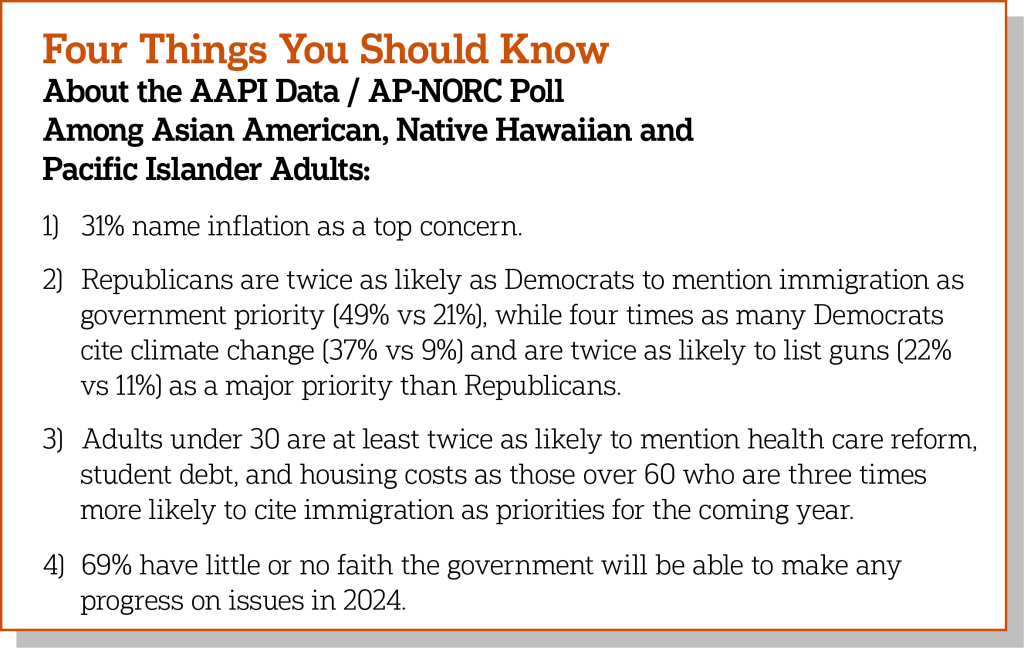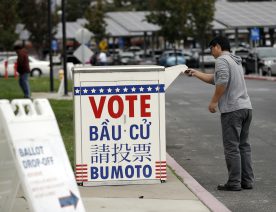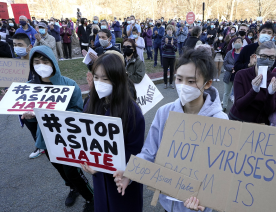
Economic and foreign policy concerns top the list of issues that Asian American, Pacific Islander and Native Hawaiian (AAPI) communities want to the government to address in 2024. Specifically, inflation and immigration are cited by roughly 3 in 10 as a priority for the government to act on, according to a new AAPI Data/AP-NORC Poll. Similar percentages of U.S. adults overall also cited these issues as top priorities for 2024.
Respondents to the nationally representative survey of AAPI adults were asked to list up to five key issues they believe should be top priorities for the federal government in the coming year.
The environment and climate change, general economic concerns, and health care are also mentioned frequently. Education/student debt, gun issues, and crime/violence emerge as top concerns as well.
Among AAPI adults, Democrats and Republicans differ on priority issues. Republicans mention immigration as a policy concern at twice the rate of Democrats (49% vs 21%). AAPI Democrats are about four times as likely to mention climate change than their Republican counterparts (37% vs 9%), and twice as likely to mention guns (22% vs 11%).
Despite large political differences, the data also reveal generational differences on priorities within AAPI communities. AAPI adults under 30 are more likely to prioritize health care reform (32% vs. 16%), student debt (29% vs. 9%), housing costs (17% vs. 7%), and the Israel-Palestine conflict (23% vs. 9%) than those aged 60 and older. Older AAPI adults, particularly those 60 and above, prioritize immigration more than those age 18-29 (46% vs 14%).
Doubts about the government’s ability to respond to the public’s concerns are widespread among AAPI Democrats and Republicans, echoing the broader national trend. Sixty-nine percent have little or no confidence that the federal government can make any progress on problems facing the country in 2024, while 29% are moderately confident, and only 3% are highly confident. These findings mirror the mood of the general population, where 71% of U.S. adults share low confidence, 23% express moderate confidence, and just 5% exhibit high confidence in the government’s efficacy.

The nationwide study was conducted by The AP-NORC Center for Public Affairs Research and AAPI Data from November 6–15, 2023, using the Amplify AAPI Monthly survey drawing from NORC’s Amplify AAPI® Panel designed to be representative of the U.S. Asian American, Native Hawaiian, and Pacific Islander household population. Online and telephone interviews were offered in English, the Chinese dialects of Mandarin and Cantonese, Vietnamese, and Korean with 1,115 Asian American, Native Hawaiian, and Pacific Islanders aged 18 and older living in the United States. The margin of sampling error is +/- 4.4 percentage points.





